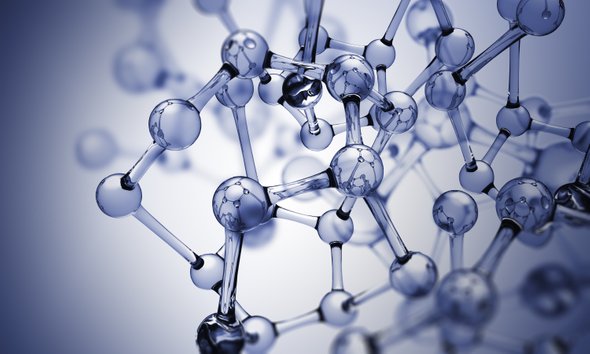(单词翻译:单击)
听力文本
This is Scientific American — 60-Second Science. I'm Steve Mirsky.
"This year's prize is harnessing the power of evolution. The Royal Swedish Academy of Sciences has decided to award the Nobel Prize in Chemistry 2018 with one half to Frances H. Arnold for the directed evolution of enzymes and the other half jointly to George P. Smith and Sir Gregory P. Winter for the phage display of peptides and antibodies."
Göran Hansson, secretary general of the Academy, earlier today.
"Frances H. Arnold was born in Pittsburgh, Pennsylvania, in the United States in 1956 and she's currently at the California Institute of Technology, Caltech, in Pasadena in the Los Angeles area. George P. Smith was born in 1941 in Norwalk, Connecticut, and he's currently at the University of Missouri, in Columbia, in the United States. Sir Gregory P. Winter was born in 1951 in Leicester, in the United Kingdom. And he is at the Laboratory of Molecular Biology and the University of Cambridge in England."
"So with that I'd like to ask Claes Gustafsson, chairman of the Nobel committee, to make some remarks about the prize. Claes."

CG: "Thank you, Göran. This year's prize in chemistry rewards a revolution based on evolution. Our laureates have applied principles of Darwin in test tubes. And used this approach to develop new types of chemicals for the greatest benefit of humankind..."
"For thousands of years we humans have used selective breeding to create animals and plants with properties that have been useful for us. This year's Nobel laureates have taken the next step. They have used the molecular understanding that we today have of the evolutionary process and re-created the process in their laboratories in their test tubes..."
"This work has led to the creation of proteins with new enzymatic activities, able to catalyze useful chemical reactions. In addition, with the method called phage display, they have also evolved proteins with new binding properties, such as antibodies that can be used to treat disease. In their laboratories, our laureates this year have been able to direct evolution, to steer it, which has led to new chemical tools that can be used in everything from environmentally friendly detergents to the creation of new biofuels and pharmaceuticals."
For an in-depth listen about the 2018 Nobel Prize in Chemistry, look for the Scientific American Science Talk podcast later today.
For Scientific American — 60-Second Science. I'm Steve Mirsky.
参考译文
这里是科学美国人——60秒科学。我是史蒂夫·米尔斯基。
“今年的诺贝尔化学奖涉及如何利用进化的力量。瑞典皇家科学院决定将2018年诺贝尔化学奖一半授予弗朗西斯·阿诺德,以表彰其在‘酶的定向进化'方面的贡献;另一半共同授予乔治·史密斯和格雷戈里·温特尔,以表彰他们在‘多肽和抗体的噬菌体展示'领域做出的贡献。”
今天早些时候,瑞典皇家科学院秘书长戈兰·汉森宣布了这一消息。
“弗朗西丝·阿诺德1956年出生于美国宾夕法尼亚州匹兹堡市,她目前在位于洛杉矶地区帕萨迪纳市的加州理工学院任职。乔治·史密斯1941年出生于康涅狄格州诺沃克市,他目前在美国哥伦比亚市的密苏里大学任职。格雷戈里·温特尔爵士1951年出生于英国莱斯特。他目前在分子生物学实验室和英国剑桥大学工作。”
“下面我想请诺贝尔奖委员会主席克拉斯·古斯塔夫松评论一下今年的化学奖。有请克拉斯。”
克拉斯·古斯塔夫松:“谢谢你,戈兰。今年的诺贝尔化学奖表彰的是一场基于进化的革命。我们的获奖者已经在试管中应用了达尔文原理。他们还用这种方法研发出造福人类的新型化学品。”
“数千年来,我们人类利用选择性育种培育出了带有特性的动植物,而这些特性有利于我们。今年诺贝尔化学奖的获奖者又向前迈进了一步。他们利用我们目前对进化过程在分子水平上的理解,在实验室的试管中改造了这一过程。”
“这项研究创造出具有新型酶活性的蛋白质,这种蛋白质可以催化有益的化学反应。此外,通过这种被称为‘噬菌体展示技术'的方法,他们还进化出了具有新结合特性的蛋白质,比如可用于治疗疾病的抗体。今年的获奖者已经能够在实验室里指挥和引导进化,这继而推动了新型化学工具的研发,这些工具可被用于从环保洗涤剂到生产新生物燃料和药品等各种领域。”
若想深入了解2018年诺贝尔化学奖的信息,请收看今天晚些时候播出的科学美国人《科学对话》播客。
谢谢大家收听科学美国人——60秒科学。我是史蒂夫·米尔斯基。
译文为可可英语翻译,未经授权请勿转载!
重点讲解
重点讲解:
1. be based on 以…为基础;
The movie is based on a real-life incident.
这部电影以现实生活中的一件事为基础。
2. lead to 招致;致使;导致;
People will accept suffering that can be shown to lead to a greater good.
如果能证明眼前的苦难会带来更大的好处,人们就会愿意承受。
3. be able to 可以…的,能够…的;
It must be better to be able to offer them love and security.
要是能给予他们关爱和安全感肯定会更好。
4. in addition 另外;加之;除…之外;
You need money and time; in addition, you need diligence.
你需要钱和时间,此外还需要努力除了伤亡之外,还有许多人失踪。


